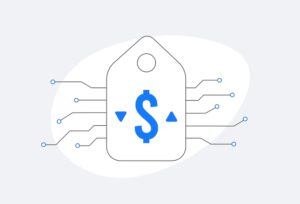Almost 80% of B2B marketers aren’t satisfied with their current levels of customer conversions, according to a new report from the CMO Council.
The problems stem from the fact marketers aren’t properly utilizing their real-time customer information, or effectively automating the mining of big data. The CMO Council’s audit of senior marketing executives, The Customer Sales Intelligence Scorecard, aggregated responses across 10 areas of front-line sales enablement. These ranged from understanding the roles and responsibilities of key decision-makers in large, complex account organizations to having a reliable, accurate and up-to-date picture of customer financials, lines of business, reporting structures, organizational changes, corporate news developments and key personnel appointments.
The most notable areas of deficiency include fragmented ownership and quality of customer data, poor levels of CRM system integration, lack of prospect prioritization, and insufficient opportunistic or contextual selling. Marketers say their sales organizations are most challenged with finding the right people who really make decisions, updating records and adding account-specific insights to CRM systems, as well as making sure records are accurate, complete, current and not duplicated.
A surprising 79% of marketing respondents surveyed by the CMO Council in Q2 and Q3 2013 admit they are not satisfied with the current levels of closure and conversion of customer opportunities. Just nine percent say their organizations have customer intelligence systems that deliver real-time, account-based news, social insights, customer developments and market shifts to the sales organization. Only 37% have systems that integrate and share any level of customer information between sales and service, support, channel, in-store or field assets.
Marketers readily believe that big data is a key enabler of personalization, with 81% stating this is an area of growing importance and strategic focus. However, personalization of interactions is only happening at the marketing campaign level with email, direct mail, web and social media engagements. In fact, some 65% say front-line resources don’t have access to social media intelligence to leverage in personalized, direct outreach.
“In our quest to leverage big data to optimize marketing effectiveness, B2B marketers have lost sight of the fundamental mandate of marketing: to better enable sales and front-line revenue drivers,” said Liz Miller, vice president of marketing for the CMO Council. “By focusing attention into how we deliver the ‘little data’—those actionable pieces of intelligence that can alert and empower the front line—we can reclaim the role of revenue driver.”
Some key findings included:
- Only 3% of respondents feel sales teams are very adept at sourcing their own customer data and insight, emphasizing the need for automated, cloud-based intelligence delivery to eliminate this manual, resource-intensive process.
- Only 21% say systems are able to automatically notify the front line to developments within customer accounts or markets, limiting the front line’s ability to capitalize on opportunistic selling within critical markets and accounts.
- The top sources of prospect and customer insights are internal databases (51%), trade shows and industry events (44%), and data developed by individual sales reps (44%), despite the preponderance of third-party, real-time, cloud-based intelligence that can be included in today’s data systems.
- Data is only updated periodically (24%), with only 17% updating data constantly and in real time.
The full 92-page report, “Know More to Grow More,” is available at http://www.cmocouncil.org/r/know-more.





 Network
Network

